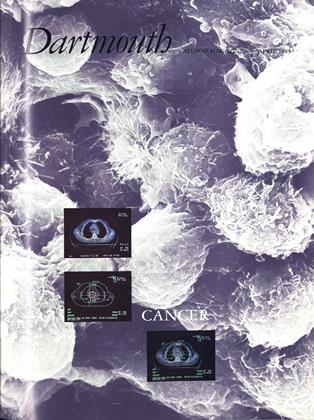Jack Little '16, Business Writing for Adults. Altair Press, 1983. 137 pp., paper. A useful book for those who care about what goes out over their signatures and on their company letterheads. The author believes that it is good to be concise, precise, direct, and lively, and what he advocates for business letters he practices in books. He might judge that last sentence to be too long, but he would be happy about the way it says what it has to say without using any long words.
red C. Shanaman Jr. '57, with Anita a mg, The First Official MoneymakingBook for Kids of All Ages. Bantam Books, 1982. 128 pp., paper. This handy little volume comes with numerous endorsements from people who have various professional concerns for the well-being of the younger generation, and it is not difficult to see why. It deals with just about every legitimate way there is for earning (and that word, means what it says) some cash during spare time or in summer breaks, giving realistic advice about what s involved and what to expect. If every kid on the block chose the same project at the same time there might be cause for concern, but in any other circumstance the main effects of this book are likely to be beneficial.
David J. Graulich '76, Your Career in theDrug Industry and in Pharmacy. Arco Publishing, 1982. 132 pp., cloth. Part of Arco's Career Guidance Series, this book gives a brief history of, and a general introduction to, the pharmaceutical professions
ranging from being the key person in the corner drug store to being involved in the discovery, manufacture, and marketing of all the things that make up our prescriptions and answers all manner of questions likely to go through the mind of someone thinking about going into one or another of them. A great deal of practical and current information is provided.
Thomas J. Tighe, Modern Learning Theory: Foundations and Fundamental Issues. Oxford University Press, 1982. 422 pp. cloth. "Psychologists," says Professor Tighe, "define learning as any permanent change in behavior resulting from experience, and the psychology, or science, of learning seeks to determine the conditions and principles which govern such changes. To put this more broadly, the psychology of learning is concerned with the ways in which we are shaped by experience." The attractively straightforward style of the sentences with which this textbook begins is maintained throughout a comprehensive account of the development of the science it deals with, its history, methods, achievements, and controversies.
 View Full Issue
View Full Issue
More From This Issue
-
 Cover Story
Cover StoryCANCER
April 1983 By Shelby Grantham -
 Feature
FeatureWhitewater Racing
April 1983 By Ted Winterer '79 -
 Feature
Feature1340 on your radio dial
April 1983 By John May '85 -
 Sports
SportsSports
April 1983 By Brad Hills "65 -
 Article
ArticleThe Arms Race and the Life of the Mind
April 1983 By Stephen J. Nelson -
 Article
ArticleRhodes Scholar
April 1983 By Steve Farnsworth '83
Article
-
 Article
ArticleThe Burning of Dartmouth Hall
MARCH 1929 -
 Article
ArticleIce Arena Named for Doug Everett '26
JANUARY 1966 -
 Article
ArticleAlumni Articles
OCTOBER 1972 -
 Article
ArticleWITH THE OUTING CLUB
February 1936 By H. T. A. Richmond '38 -
 Article
ArticleChanges Lie Ahead for the Liberal Arts College
November 1942 By Irwin Edman -
 Article
ArticleClass of 1916
Jan/Feb 2005 By Sue DuBois '05


